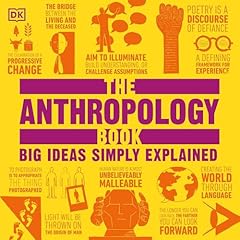
The Physics Book
Big Ideas Simply Explained
No se pudo agregar al carrito
Solo puedes tener X títulos en el carrito para realizar el pago.
Add to Cart failed.
Por favor prueba de nuevo más tarde
Error al Agregar a Lista de Deseos.
Por favor prueba de nuevo más tarde
Error al eliminar de la lista de deseos.
Por favor prueba de nuevo más tarde
Error al añadir a tu biblioteca
Por favor intenta de nuevo
Error al seguir el podcast
Intenta nuevamente
Error al dejar de seguir el podcast
Intenta nuevamente
Prueba gratis de 30 días de Audible Standard
Selecciona 1 audiolibro al mes de nuestra colección completa de más de 1 millón de títulos.
Es tuyo mientras seas miembro.
Obtén acceso ilimitado a los podcasts con mayor demanda.
Plan Standard se renueva automáticamente por $8.99 al mes después de 30 días. Cancela en cualquier momento.
Compra ahora por $22.50
-
Narrado por:
-
Richard Trinder
-
De:
-
DK
Using a bold, graphic-led approach The Physics Book sets out more than 80 key concepts and discoveries that have defined the subject and influenced our technology since the beginning of time. With the focus firmly on unpicking the thought behind each theory - as well as exploring when and how each idea and breakthrough came about - seven themed chapters examine the history and developments in areas such as energy and matter, and electricity and magnetism, as well as quantum, nuclear, and particle physics.
Eureka moments abound: from Pythagoras's observations of the pleasing harmonies created by vibrating strings, and Galileo's experiments with spheres, to Isaac Newton's apple and his conclusions about gravity and the laws of motion. You'll also learn about Albert Einstein's insights into relativity; how the accidental discovery of cosmic microwave background radiation confirmed the Big Bang theory; the search for the Higgs boson particle; and why most of our Universe is missing.
If you've ever wondered exactly how physicists formulated - and proved - these abstract concepts, The Physics Book is the book for you.
© 2020 Dorling Kindersley Ltd © 2020 DK Audio
Los oyentes también disfrutaron:




















Reseñas de la Crítica
“Readers who want to know more about physics but are intimidated by the subject’s complexity will want to turn to The Physics Book” —Booklist
Las personas que vieron esto también vieron:

















Good Intro to Physics
Se ha producido un error. Vuelve a intentarlo dentro de unos minutos.
Excellent book on history of physics
Se ha producido un error. Vuelve a intentarlo dentro de unos minutos.
Excellent
Se ha producido un error. Vuelve a intentarlo dentro de unos minutos.
Great book. Highly recommended.
Se ha producido un error. Vuelve a intentarlo dentro de unos minutos.
Dense but Informative
Se ha producido un error. Vuelve a intentarlo dentro de unos minutos.


